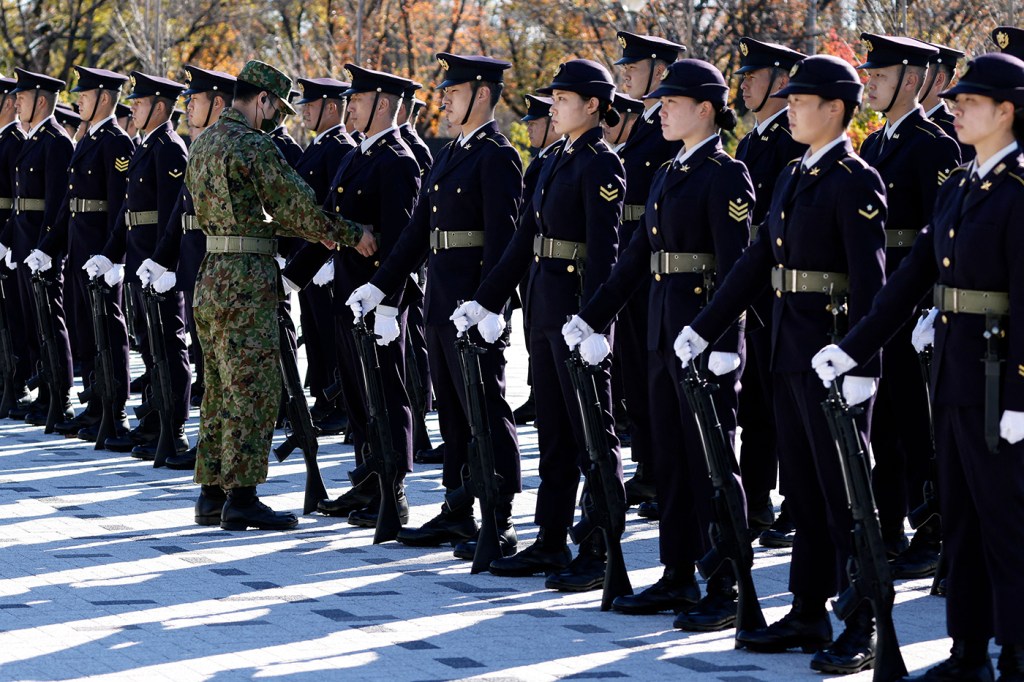Why Japan’s anti-military stance is unlikely to change

Germany has committed to rebuilding its military, thereby reversing a post-war commitment to pacifism. Will its former ally Japan do the same?
The question follows the shocking assassination on Friday of former Japanese prime minister Shinzo Abe, who had long advocated for constitutional changes to Japan’s pacifist ideology. Two days after Abe’s death, his Liberal Democratic Party (LDP) added to its majority in what Daniel Aldrich, a Northeastern professor of political science and public policy, refers to as a “sympathy vote.”

“Abe’s faction—even though he was no longer the prime minister or an active member of Parliament—was quite powerful,” says Aldrich, whose five books and 75 peer-reviewed papers have focused mainly on Japan. “With his passing the question will be, what will happen to his faction?”
One of Abe’s unfinished missions was his desire to revise Article 9 of Japan’s constitution. Enacted after World War II, it prevents Japan from waging war in response to international disputes. Japan’s “Self-Defense Forces”—which employ close to 250,000 people—are so named because “defense is not prohibited by the process,” says Aldrich.
Japan remains devoted to pacifism even as the global post-war realities are being undone. When Russia invaded Ukraine, Germany responded by committing more than $100 billion for defense spending this year with a promise to send weapons to Ukraine—pledges that would have been unimaginable to previous generations.
Aldrich spoke with News@Northeastern about the limitations of Article 9 and why he believes Japan is unlikely to militarize. His comments have been edited for brevity and clarity.
What is Article 9 in Japan’s constitution?
The first paragraph basically says Japan won’t use force. The second paragraph says they should not maintain armed forces. And then the third says they will not grant rights to belligerency. In other words, they’re not going to be using war as a way to settle conflict.
How has Article 9 been managed by Japan’s leaders over the years?
A variety of attempts have been made to reinterpret the existing laws to make it easier to dispatch Japanese troops abroad in times of violence.
In 1991, during the Gulf War, one of the Cabinet members was told they couldn’t use troops against Iraq, but they could send money or minesweepers. When America was fighting in Afghanistan, the LDP sent troops not to fight but to do logistics—so troops were there without materials of war.
Why hasn’t Article 9 been changed?
For a long time, the LDP lacked a sufficient majority in the Japanese Parliament. So they had what we call a super majority, with Komeito, the Soka Gakkai Buddhist group’s offshoot political party. Komeito has long opposed changing Article 9. And then there are other political parties, which have fewer seats, that have regularly tried to slow down or stop any attempts from the LDP to reinterpret or revise the broader constitution.
Germany invested in its military after Russia invaded Ukraine. Is Japan—which faces potential threats from North Korea and China—likely to follow suit?
To change Article 9, you would need a two-thirds majority [vote in Parliament] and a referendum of the citizens—political action from the politicians and broad consensus from the population.
I find it very, very unlikely that it would pass a broader referendum because of the broader norm of pacifism in civil society and because of the U.S. presence in Japan. Don’t forget, the U.S. wrote the constitution for Japan and occupied Japan officially until 1954. America still has around 43,000 U.S. troops based in Japan. The presence of U.S. troops makes many politicians feel that Japan has no need to invest more resources in its own military.
Japan has sworn off nuclear weapons, but the U.S. has regularly brought in nuclear-armed submarines and ships into Japanese ports. So in a sense, Japan doesn’t really need to move that much to feel relatively safe.
Is there concern in Japan that American support may be diminished if an isolationist U.S. president is elected in future?
During President [Donald] Trump’s administration, Abe was prime minister and he made a very deliberate effort to make a personal relationship with Trump. So I think Japan was vaguely concerned at that time but actively sought ways to ameliorate America’s isolationism.
But the other nice thing for Japan is there are multiple layers of formal ties between the two countries. So it’s less worrisome that a personality like Trump would be able to upset the broader set of bureaucratic safeguards.
For media inquiries, please contact media@northeastern.edu.






